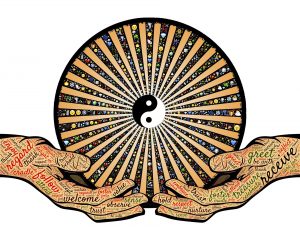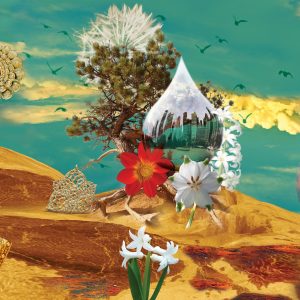
The content of this website is in the process of development. Up to this point, readers may have thought, quite reasonably, that there has not been much about politics on a site called Spirituality in Politics. Here, therefore, are some headline policies, in order to give a taste of my thinking. These will be developed at greater length as soon as possible.
Articles Pending:
1. Political and Economic Philosophy:
Arguing for politics inspired from the centre, thus against both Socialism, and unfettered Free Market Capitalism. Arguing for a common-sense balance between the two, a synthesis of the best of both, inspired by (Taoist) spirituality. Two longer articles on this theme are now on the website.

2. Role of the Citizen:
One individual as part of the Earth as a superorganism. Relevant ideas are: James Lovelock’s Gaia hypothesis Arthur Koestler’s concept of the holon Spiritual, not Socialist, internationalism.

This should lead to a radically new understanding of politics from a spiritual perspective. Every person is part of an ongoing process, not a separate individual.
3. Leadership and government:
The need for leaders, but leaders whom the people respect and trust. Against Anarchy, which is too idealistic.
Since it is a spiritual society that is being built, the old idea of a priest-king is interesting. The word “king” is mentioned because that is what the role was called in the past. Obviously in modern times this term is outdated, and my use of it should not be interpreted as an attempt to remove democracy; the political leader would always have to seek reelection, and would therefore be closer to a modern president. He or she would be a leader not motivated by ego or power, rather by the maxim “to rule truly is to serve”, which means serving the people, at the same time as serving the realm of spirit.
4. Education: There is already a separate article, please click on Education.
5. Health:
Focus on the psychological health of the nation; we need more contented citizens, since reports about increase in depression, addiction, anxiety, self-harming etc. are frequently reported in the media. What follows is a suggestion for how to bring this about. There is a great need for more spiritually aware people, since it is claimed that people are becoming increasingly non-religious. This is hard to achieve by the power of argument; people tend to be predisposed to a certain world-view. The method most likely to instigate a change is a powerful personal experience. Two simple examples: there is no point trying to argue with people who are convinced that ESP is impossible, but it would take only one experience of ESP to persuade them of its reality, and after that they would be lying if they continued to deny it. Similarly, some people may refuse to believe in ghosts, and think the whole idea ridiculous. It would take only one encounter with an actual ghost, however, to change their minds. It is therefore vitally important that citizens should be given the opportunity to have experiences to persuade them of the truth of spiritual ideas. Two examples which tend to have such an effect are near-death experiences (NDEs), and spontaneous out-of-body experiences (OOBs). These are for obvious reasons rare, and cannot be produced frequently in a controlled way. Historically the most effective way of triggering a spiritual experience has been the use of psychedelic drugs, for example soma, ayahuasca, peyotl (mescaline). In more recent times the synthetic LSD has been used. I therefore propose a state-organised controlled programme of psychedelic drug taking, LSD being the most obvious candidate. The primary inspiration and reference source for this would be the life and work of Stanislav Grof, who led psychotherapeutic drug programmes in Czechoslovakia and the USA, until these were made illegal. He then devised an alternative method of achieving similar results through intensive breathing. His most significant books on this theme are Realms of the Human Unconscious, and LSD Psychotherapy. He has also talked about his life and work on a fascinating series of audio-cassettes, called The Transpersonal Vision.  This is obviously a very controversial idea, and would provoke much opposition. I believe, however, that all objections can be quite reasonably answered and rebutted. Participation would obviously be on a voluntary basis. It would be open to anyone, since its primary purpose would be to explore the inner world of the psyche, to help people to become more spiritually aware. However, the expectation would be that many people with mental health issues would gain greater insight into their problems and more easily resolve them.
This is obviously a very controversial idea, and would provoke much opposition. I believe, however, that all objections can be quite reasonably answered and rebutted. Participation would obviously be on a voluntary basis. It would be open to anyone, since its primary purpose would be to explore the inner world of the psyche, to help people to become more spiritually aware. However, the expectation would be that many people with mental health issues would gain greater insight into their problems and more easily resolve them.
6. The Environment:
Much of the above should help to develop a connection with nature and love for the planet. People would then be inspired to act in an appropriate way from this perspective.
